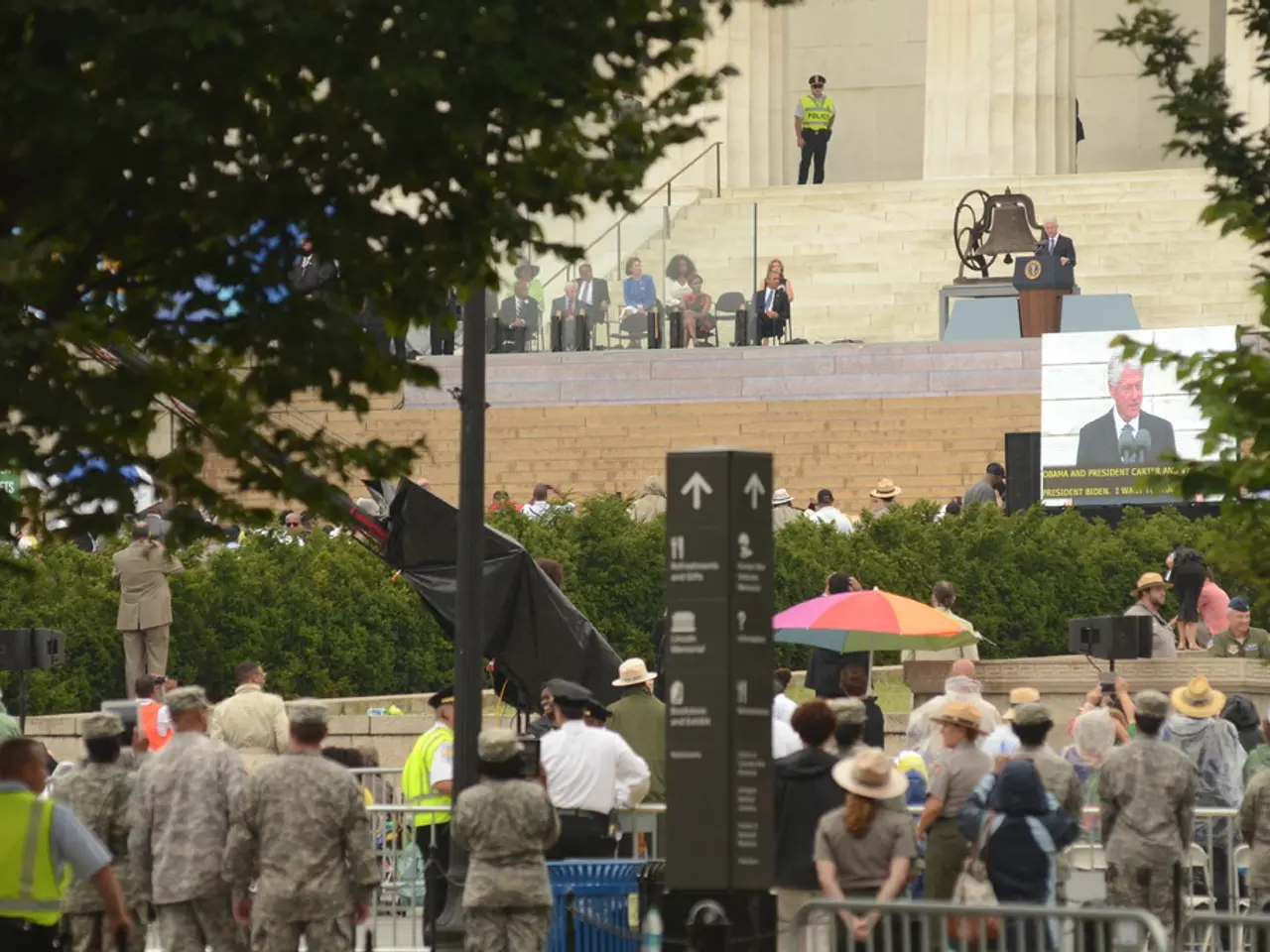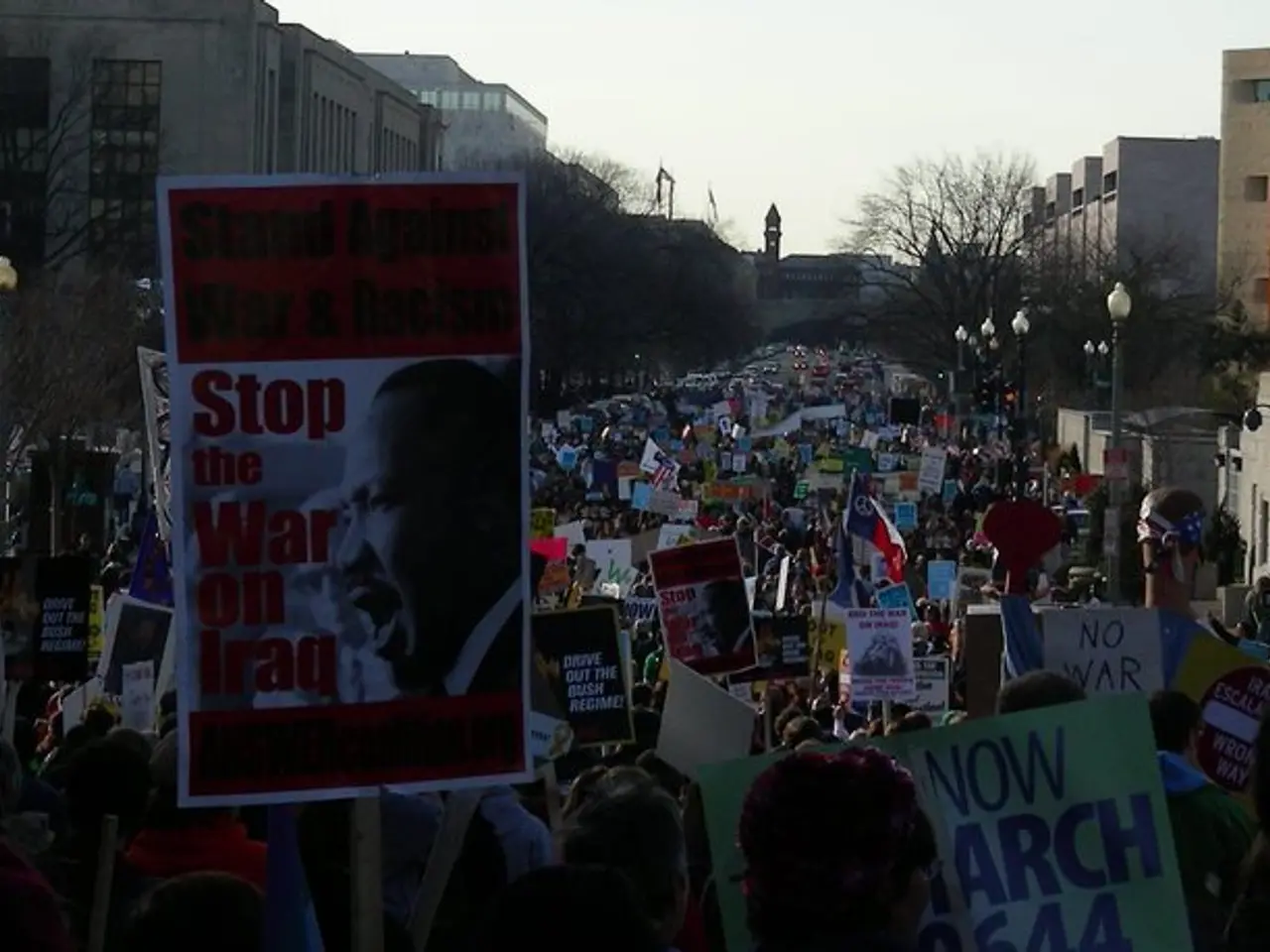Freshly Baked Ruling: Supreme Court Limits Sweeping Injunctions, Empowering Executive Branch
Supreme Court delivers decision in favor of Trump in injunction case
In a landmark decision, the US Supreme Court has put a stop to the overreach of federal judges by curtailing the use of nationwide injunctions. This ruling, in a 6-3 vote, means that judges can now only grant relief to the plaintiffs directly involved in a particular lawsuit, not the entire country [2][3].
The decision, penned by Justice Amy Coney Barrett, strikes a major blow to former President Donald Trump's adversaries, especially in relation to his controversial Executive Order 14160. This order aimed to deny birthright citizenship to the children born in the U.S. to undocumented or temporary visa holders, a move contested by the 14th Amendment's citizenship clause. Previously, multiple district courts had halted the enforcement of this divisive order nationwide, but this Supreme Court decision means courts can no longer impede it beyond the immediate plaintiffs [2][3].
The broader implication of this ruling is a reassertion of the separation of powers between the judiciary and the executive branch. This decision emphasizes that nationwide injunctions were historically scarce and reflect an overreach of the judiciary's authority [3]. The White House Counsel hailed the decision as "a tremendous victory for the American people and the rule of law" because it prevents "rogue, activist judges" from halting presidential actions across the nation [4].
In essence, the ruling means that future administrations, including the Trump administration, will have a greater ability to implement their executive policies without fear of being stymied by broad judicial stoppages from courts outside the immediate case's jurisdiction [4].
Here's a quick breakdown:
| Aspect | Details ||------------------|----------------------------------------------------------------|| What Are Injunctions? | Court orders halting the enforcement of a law or policy || Supreme Court Decision | Injunctions can only affect parties directly involved in a case || Impact on Trump's Policies | Allows enforcement of challenged executive orders like birthright citizenship restrictions without nationwide block || Broader Significance | Reinforces separation of powers; limits judicial overreach; seen as defending executive authority and rule of law || Dissent | Justice Ketanji Brown Jackson disagreed, calling the ruling a threat to the rule of law [2] |
In plain terms, this ruling empowers the executive branch at the expense of judicial overreach, especially on controversial policies that have faced nationwide court orders under the Trump administration [1][2][4].
The Supreme Court's ruling on nationwide injunctions serves to limit judges' authority, allowing them to only grant relief to parties directly involved in a lawsuit, rather than imposing changes on the entire nation, as seen in the case of former President Trump's Executive Order 14160 on birthright citizenship. This decision reaffirms the importance of policy-and-legislation being implemented by the executive branch, rather than being held back by extensive judicial interference in politics, thus emphasizing the critical principle of separation of powers in general-news.








